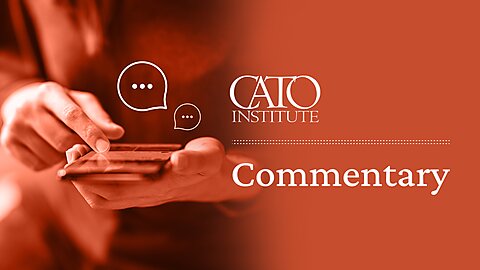Walter Olson
No civil rights law on the books requires “viewpoint diversity” in university admissions or hiring or creates a protected class of students or faculty based on ideological views.
No law of any sort entitles the federal government to reach into private universities to restructure their governance and disciplinary procedures to “improve [their] viewpoint diversity and end ideological capture”—whatever that means—or to require college brass to intervene to restructure named departments and schools that federal overseers designate as ideologically out of line—even, incredibly, a divinity school.
These are all things that the Trump administration is demanding of Harvard University on pain of massive peremptory cutoffs of funding for ongoing scientific research and other programs—cutoffs that appear to violate a number of legal safeguards meant to prohibit arbitrary or spiteful defunding without due process.
I’m glad that Harvard is fighting back, and I hope other institutions do too. I also hope right-of-center legal and policy thinkers who spent years resisting Washington’s heavy hand in university governance will realize that they need to defend Harvard too.
I wrote last month about the Columbia University case, in which Trump’s appointees went for a test run against one prestigious university and got it to fold its hand.
Central to the technique, with Columbia as with Harvard, was the method called “punishment first, verdict later.” The confrontation would begin with the funding cutoff, and the institution would then be in a position of weakness during the ensuing negotiation over whether and how it had erred and what it would do to get back on the rulers’ good side.
But as legal scholars pointed out at the time, the law specifically prohibits that way of proceeding. Before a funding cutoff, the law prescribes steps that must include clear specification of the charges, a chance for the accused institution to respond, and written findings (which can then be challenged in court). All were ignored. The law also protects the universities from the prospect of cutoffs in unrelated programs: Even if a civil rights violation is proven to have taken place at an undergraduate library, for example, that doesn’t mean it’s lawful to cut off funds at the hospital or physics lab.
No one is arguing that there can never be strings on grants or that there is an entitlement to permanent money from Washington. There isn’t. (Federal funding for scientific research, it seems to me, if proper at all, should be allocated based on who can best carry out the research, not who has the most ideologically balanced humanities department.) But the courts have made it clear in rulings based on the doctrine of unconstitutional conditions that Washington may not use the threat of defunding to extract the surrender of constitutionally protected rights such as those protected by the First Amendment. Those are very much at stake here, especially given the administration’s open appetite for using its leverage to change the ideological tone of the Harvard faculty.
I’ll let others address the claims that the university violated the rights of Jewish students by tolerating hostile Gaza protests and in other ways. (A court would be the best place for those claims to be adjudicated.) I will, however, point out that, contra the demands from Washington, no civil rights law requires private universities to cease all so-called diversity, equity, and inclusion (DEI) programs. It’s true that recent Supreme Court rulings remove the Court’s previous approval of “reverse” discrimination practices in areas like admissions, and universities that have had such practices will need to end them. But courts have not yet sorted out what the implications are for a wide array of so-called softer DEI practices, such as employee trainings, that do not necessarily deprive any student or faculty member of opportunity. In my view, it’s quite unlikely that courts will find all of those banned by law—which means they can also not properly be banned by presidential decree or arm-twisting.
And should a court find that discrimination against individual Harvard students or groups of them has been proved, it’s very unlikely to order remedies that police “viewpoint diversity” or “ideological capture,” require the university to deprecate some ideological viewpoints in favor of others, or otherwise slice deeply into traditional areas of academic freedom. Courts are usually at pains to craft remedies that respect constitutional rights and liberties.
Now Trump has added fuel to the fire, according to published reports, by directing the Internal Revenue Service to revoke Harvard’s tax exemption on the strength of the notion (which is not, in fact, the law) that institutions cannot be tax exempt unless they serve what the ruler regards as the public interest. This move is exceedingly unlikely to be upheld in court, despite supporters’ gestures toward the 1983 Bob Jones University case, in which the Supreme Court upheld the revoking of a tax exemption based on racial discrimination.
In the 40 years since that ruling, defenders of limited government have worked carefully and successfully to confine the supposed principle to the narrow facts of that one case. For one thing, it was very obvious that the right of religious and conservative institutions to tread their own path was at stake—indeed, a scattering of progressives then and now have called for stripping the tax exemptions of Catholic universities because they view as discriminatory that church’s stands on female ordination and other questions.
The confining of Bob Jones to its facts is still a worthy goal—even if some of Trump’s allies have decided to change sides on the subject.
This blog is lightly edited and cross-posted from the author’s Substack, where a longer version ran.

